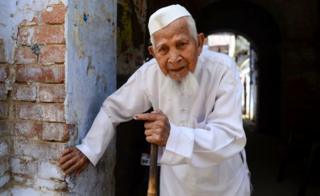- UID
- 20
- Online time
- Hours
- Posts
- Reg time
- 24-8-2017
- Last login
- 1-1-1970
|
|
━━━━━━━━━━━━━━━━━

▼ India has the world's second largest Muslim population, but there are very few lawmakers from the community. The BBC's Priyanka Pathak reports on the community's shrinking political representation.
On a recent warm morning in Madhubani, a constituency in the eastern state of Bihar, political workers, local businessmen and activists gathered around Shakeel Ahmad in a narrow lane.
Soon after, Mr Ahmad, who is contesting for the seat, sped away in his white motorcade - into a dusty lane and onto yet another blistering day of campaigning.
The 63-year-old is a former member of the main opposition Congress party. But in April, when the party announced that it would not field him as a candidate in Madhubani, he did something unprecedented.
He resigned, ending his decades-long association with the Congress. He then filed his nomination as an independent candidate from the same seat, which he has won twice before.
It was a startling decision - and one that was spurred by widespread Muslim support. It revealed the resentment and frustration among Indian Muslims who are increasingly concerned about their shrinking political representation.
The governing Bharatiya Janata Party (BJP) has fielded just seven Muslim candidates in the ongoing general election - it's contesting 437 seats in the 545-member lower house of parliament. It had fielded the same seven candidates in 2014 too, but none of them won. It was the first time in India's history that the government had no Muslim members of parliament.
In the 2014 election, Congress contested 464 seats but fielded just 31 Muslim candidates - of those, only seven won. Much hasn't changed in this election - only 32 of the party's 423 candidates are Muslim. (▪ ▪ ▪)
► Please, continue reading this article here: Source |
|